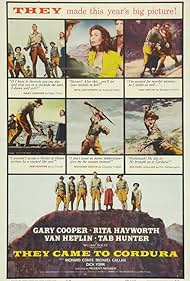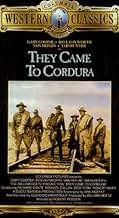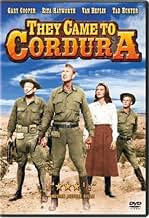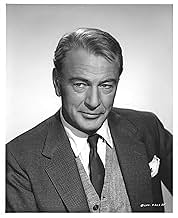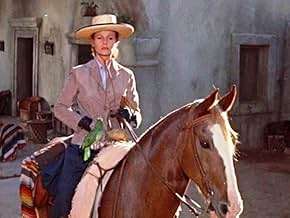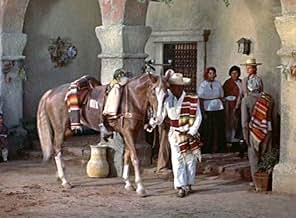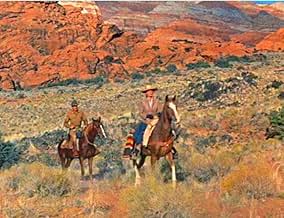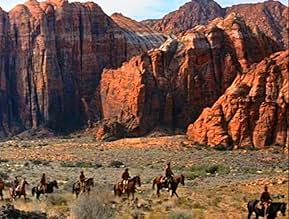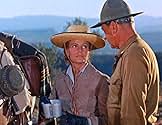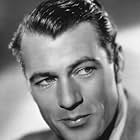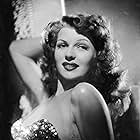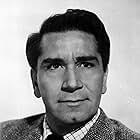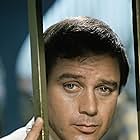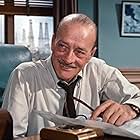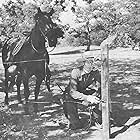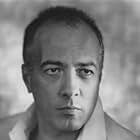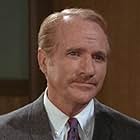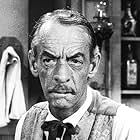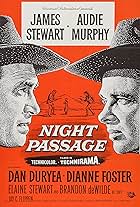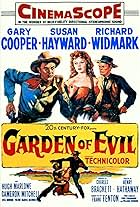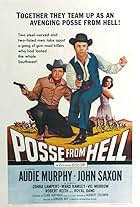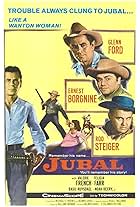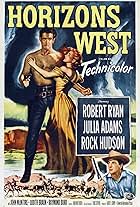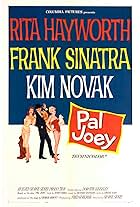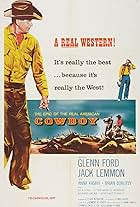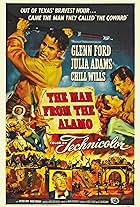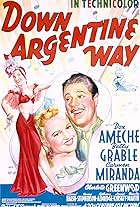IMDb RATING
6.4/10
2.5K
YOUR RATING
An army major, himself guilty of cowardice, is asked to recommend soldiers for the Congressional Medal of Honor during the Mexican Border Incursion of 1916.An army major, himself guilty of cowardice, is asked to recommend soldiers for the Congressional Medal of Honor during the Mexican Border Incursion of 1916.An army major, himself guilty of cowardice, is asked to recommend soldiers for the Congressional Medal of Honor during the Mexican Border Incursion of 1916.
- Awards
- 1 win & 1 nomination
Jim Bannon
- Capt. Paltz
- (as James Bannon)
Wendell Hoyt
- Cavalry Trooper
- (uncredited)
- Director
- Writers
- All cast & crew
- Production, box office & more at IMDbPro
Storyline
Did you know
- TriviaAlthough Gary Cooper was 57, his character Major Thorn was forty years old according to the novel. Early in the film it is mentioned that Thorn's father had recently been killed while still on active service.
- GoofsMajor Thorn improperly salutes Colonel DeRose in the opening scene when he is dismissed. He should have saluted and held his salute until it was acknowledged. Instead, he lowers his arm even before Colonel Rose acknowledges it.
- Quotes
Major Thomas Thorn: Did you ever see the Medal of Honor?
Private Renziehausen: No, Sir.
Major Thomas Thorn: It's the most beautiful decoration of all, as it should be. I'd trade an ear for one any time, two in fact.
Private Renziehausen: Excuse me, Sir, but I'd rather have the ear.
- Crazy creditsOpening credits prologue:
On the night of March 8th, 1916, a large mounted force of Mexican rebels under Pancho Villa crossed the American Border and attacked the town of Columbus, New Mexico, killing and wounding both American civilians and soldiers.
As a result of this action,the United States Army sent an expedition into Mexico with orders to capture Villa and disperse his forces.
It was during this campaign that one man, an United States Army officer,was forced to come face to face with two of the great fundamental questions that affect mankind:
What Is Courage? What Is Cowardice?
This is the story of his search for an answer.
- ConnectionsFeatured in Stars of the Silver Screen: Rita Hayworth (2011)
Featured review
I would like to add another comment from a little different viewpoint than what has been expressed at IMDb so far. A little film history first- this movie appeared in 1959 and was based on a book with the same title that had come out about a year earlier. Now, in this era (late 1950s) the Westerns ruled TV as well as the movies. It was the popular genre at the time. Also popular at the time were "war movies" that depicted United States troops in action in WWII. That war was pretty recent in memory then and had been quite popular and, of course, a lot of people still remembered our involvement and victory in the first fracas in 1917-1918. Now, how could an author tie in our military's achievements in the World Wars with the Old West? The World Wars were fought in Europe and Asia (Atlantic and Pacific for you Navy people) and neither had any real connection with the American West. The best that anybody could do to link up the two popular genres was to bring up the expedition in 1916 that sent the Army under General Pershing into the country of Mexico to hunt down or at least slow down the various Mexican rebel factions such as the one under Pancho Villa. This is the one time in history that, by any stretch of the imagination, the modern U.S. military was involved in a part of the "Old West". In this time, the "Old West" still lived in Mexico in 1916 plus the fact the U.S. military still used mounted calvary; though they were not going to take them to Europe the next year. However, the U.S. military did take General Pershing and Capts Douglas McArthur and George Patton to Europe the next year so yes, in a way the WWI (perhaps even the WWII) military did fight in the Old West due to this military expedition. Hence the linkage; and why this time and military action gets a disproportionate amount of attention in movies and TV to this date. The trouble with this premise of the Old West calvary in Mexico is that you have people acting in a way that is simply not believable for that era. The plot is very suspicious. You have five men who find they are going to be submitted for the Medal of Honor- an award that was quite well known even then. Perhaps one or even two of the men might not want the award and could conceivably threaten the nominating officer, but that is highly unlikely. Some men, in the past, have not wanted to be awarded the medal but usually because they sincerely felt they did not perform any action that any other man in their unit would not have done. And even when an individual truly did not want the medal, they never threaten the life of a superior officer. To have five men (one of them an officer) nominated for that most illustrious of medals, gang up on the nominating officer is simply so far fetched that only Hollywood could have even conceived of it. In real life, Captain McArthur was nominated for the medal for his actions in Mexico. He did not receive it due to some political reasons; nevertheless the fact remains that he did not threaten the nominating officer. This, by itself, destroys the entire believability of the character of "Lt William Fowler" in this movie. The rest of the characters are equally unbelievable in the context of the movie- the "act of cowardice" of Maj Thomas Thorn (sorry, but Gary Cooper was just a little too old to portray even a passed over Major) was hardly cowardice but simply proper tactics- take cover until you find out where the enemy fire is coming from. If you can't find it or do not have the proper weapon then stay put. Don't get killed unnecessarily. In fact, the proper response of Maj Thorn to Cpl Milo Trubee, when Trubee threatened to blackmail him, would have been something of the nature of "up yours Trubee" as Trubee hardly had anything to blackmail the Major with. Actually, this movie used the military only because of the high respect in society the military had in the 1950s (and does again today, in fact); hence the more dramatic juxtaposition. Now, having wrote all that- let me explain the true moral of this movie and why I like it so much. The military has high respect in society even though, by and large, the military performs duties that are dirty and hard work. In fact, military duty can be depressingly boring and monotonous. Now, in other parts of society there are people who are doing jobs that are at least equally dirty and hard, boring and monotonous. Unlike the military, those people generally do not get much respect from society. For some reason the upper class (and I am in that group) tends to ignore or turn their backs to the lower class workers. And, then, we wonder why this group of people will act belligerent and tough. Well, they may already be that way. Yet, I have seen decent people turn bad due to the disrespect given to them by others. I do not like to see that occur even though I cannot say that I myself have not been disrespectful in the past to people on the "fringe" of society. This movie, by using military personnel in a proxy manner, explores this deeper issue; basically, are there heroes or at least potential heroes amongst the people that we usually ignore? The thoughtful exploration of that question redeems the error in the movie that I previously mentioned. It is a good movie; I recommend that everybody watch it at least once when they are young as it explores the human psyche in much the same way that Major Thorn does.
- artisticengineer
- Mar 18, 2006
- Permalink
- How long is They Came to Cordura?Powered by Alexa
Details
Box office
- Budget
- $4,000,000 (estimated)
- Runtime2 hours 3 minutes
- Color
- Aspect ratio
- 2.35 : 1
Contribute to this page
Suggest an edit or add missing content

Top Gap
What is the Brazilian Portuguese language plot outline for They Came to Cordura (1959)?
Answer